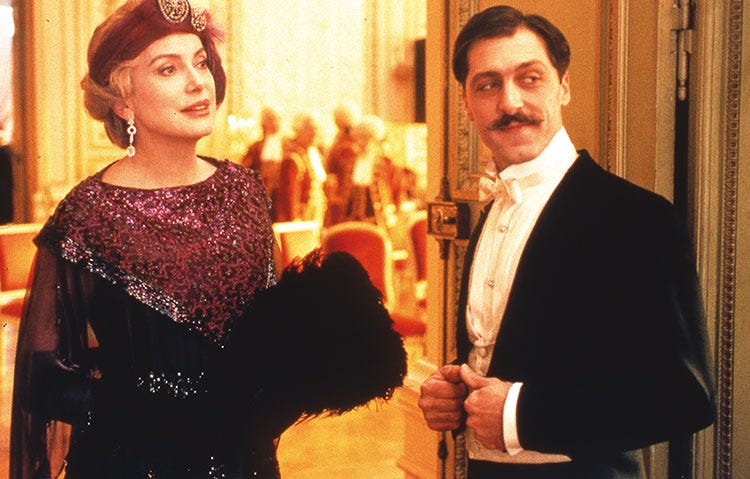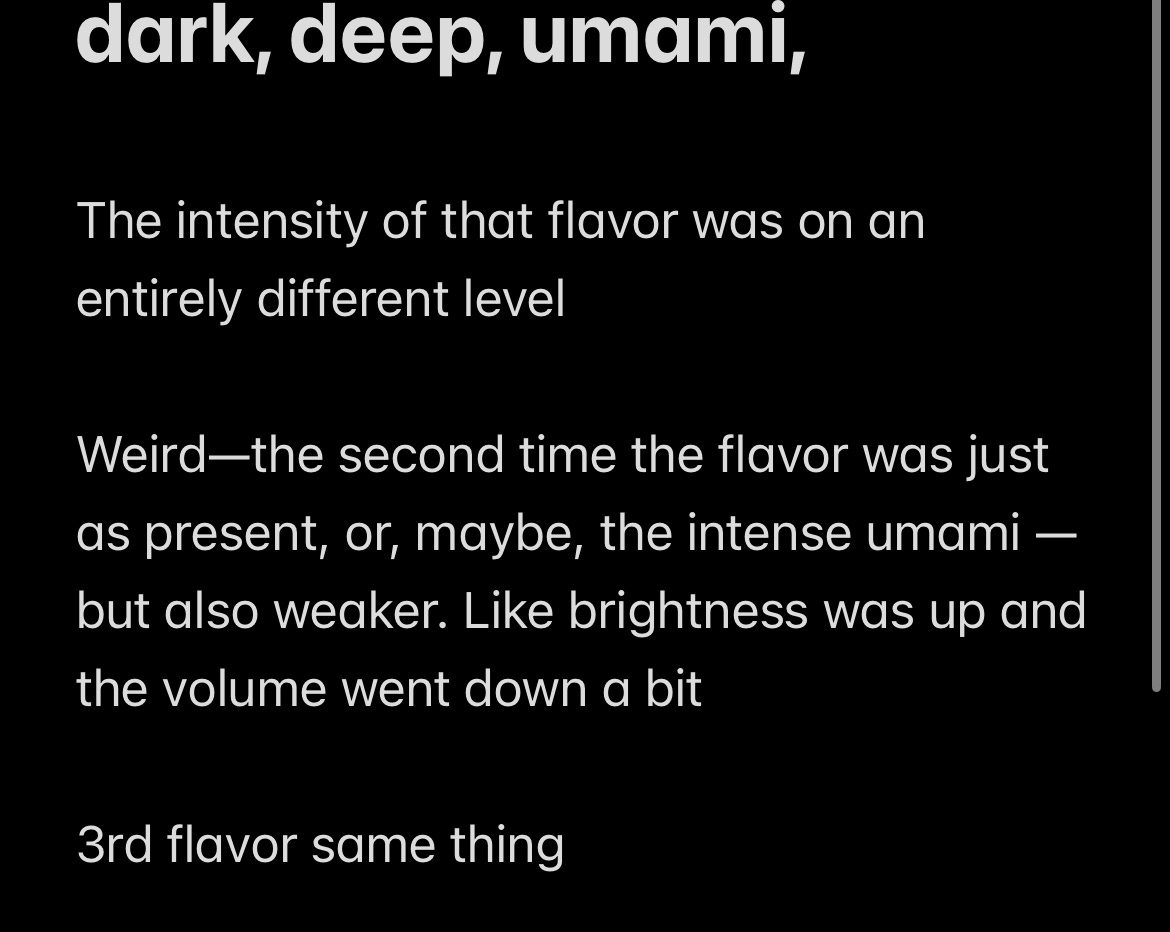Fighting Forgetting
Is 'trying to remember' worth anything?
Thanks for bearing with me on that break. I’ve now got plenty more to write about :).
Marcel, the main character from Proust’s Search, is famously swept away by his experience of eating a Madeline:
“No sooner had the warm liquid mixed with the crumbs touched my palate than a shudder ran through me and I stopped, intent upon the extraordinary thing that was happening to me. An exquisite pleasure had invaded my senses, something isolated, detached, with no suggestion of its origin. And at once the vicissitudes of life had become indifferent to me, its disasters innocuous, its brevity illusory – this new sensation having had on me the effect which love has of filling me with a precious essence; or rather this essence was not in me it was me. ... Whence did it come? What did it mean? How could I seize and apprehend it?”
Marcel was lucky; this was a beautiful experience. But, at the end, he says something quite interesting. He talks about seizing and apprehending it. This would seem to imply that such an experience could be lost, that one could fail to do the right thing to it and waste it, fail to apprehend it. I want to explore this today. What is it to seize a moment?
A few years ago, I was walking the streets of London. I was there studying abroad, and had slipped away from the group I was apart of. I had a mission: I was going to visit Big Ben and Parliament!
It was a pretty walk there. At the time it was quite hot, so I didn’t stick around that much in one place. I was quite intent on finding a bathroom, and ended up underground in a subway station.
After, I made my way across the river and walked parallel where I had just been. I stumbled upon a wall of hearts, the National Covid Memorial Wall, and spent some time reading the names. Again I moved on and continued walking. As I walked, I thought about the nature of travel.
Specifically, I asked myself, what good was all this? Seeing Big Ben, Parliament, feeling moved by the wall of hearts, if, eventually, I would forget it. It was just a day after all. I’ve forgotten many days, even ones I thought, at the time, I wouldn’t forget. I don’t remember all that much of my high-school graduation or first homecoming dance. Was I, then, wasting time going to them? Should I have been doing something more memorable?
At the time, after walking around a great deal, I concluded that this way of thought was mistaken. Surely we can’t remember everything, I told myself, and whether I forget some activity later does not impact whether it is worthwhile doing now. I ended my walk content: I had experienced London, and even if I did forget it, it was worthwhile. It was meaningful.
But, my conclusion aside, it is quite ironic I am writing about this experience. All of my worrying was for nothing. I did not forget it — in fact, I think back to that day and that conclusion quite often. Case closed.
Yet I can’t help but worry I corrupted that day. Try as I might, I don’t remember what I was doing before I started asking that question. And, what I do remember, I remember as the background. You see, I lied earlier—I didn’t start asking my question at the end of my walk, I was, rather, asking it the entire time.
My asking this question about meaning lives behind my memory of London: I don’t just remember walking by parliament. I remember walking by parliament and lamenting that I would soon forget it. I don’t find my mind wandering to my time in London, I find it wandering to that time I asked the question about meaning — which happened to, of course, take place near Big Ben.
So I only remember what I planned to forget. My expectation that I would one day forget Big Ben, the river, or that wall turned out false. All the other things I did—the things I didn’t think about forgetting; the things I was so immersed in that I didn’t even have space to ask the question, “I wonder whether I’ll remember this in 4 years,” have been lost to time. At least for now.
I seized a moment by reflecting on it, but, in so doing, I failed to grab on to everything worth seizing. Or maybe I even destroyed it. The wall was beautiful, but I don’t remember what it was like to stand in front of it, to feel the loss it represented. I don’t remember being amazed at big ben, and, as I said, I don’t remember all the things that made me have so much fun in the first place, that ultimately put me in such a position that I began to worry about forgetting.
What a shame! I don’t much care for what I do remember. Those are the things I miss.
I recently just returned from another bout of traveling. I went to Japan! It was beautiful and I loved it. I drank a great deal of tea there (something I will surely write a post about later) and, on the last day, went to a crazy-cool tasting experience. I had the best tea of my life and tasted flavors I had never imagined.
It was so beautiful, in fact, I began to worry about forgetting it. I worried about forgetting the tastes or the smells not because I feared having wasted my money but because they were so beautiful, so important to me. If I forget them, I continue to think, I will come to be without something valuable, something that makes me a more complete person.
It isn’t just that I would end up losing my memory of something—”that tea tasted nice,”—but a piece of myself. Something more personal. When I drank that Sencha, when I felt the warmth, the bitterness, I couldn’t help but laugh. It was that good!
So, like our Marcel, I tried to capture it. I quickly jotted down my experience in my notepad so I could bring it home with me.
But now when I read those 7 lines of text I feel nothing. That isn’t what I drank in Japan—it can’t be. What I drank made me laugh; it was beautiful.
I had hoped that by writing down what I felt in the moment I could evoke the experience later but failed. That experience of bliss was beyond reflection, beyond seizing. I don’t think there’s anything that I wrote down that could’ve helped me to bring the feeling home.
But even if there was, I don’t know if that would be a good thing.
If I forget the taste of that tea, if I forget that moment of bliss, I will have lost something important. Something beyond words. I don’t know what happened to me when the tea touched my lips (like a madeline touched someone else’s!), but I find myself reaching for the metaphor of rebirth. I know it was just tea but it was shattering in its own way.
Trying to seize that experience is, I think, misguided. At best I half-succeed: I remember drinking the tea and immediately going to write it down, or enacting whatever other method of preservation I go with. What I preserve is not the cause of my laughter, the bliss, but my scramble against impending doom—the end of this new life.
I don’t exactly know where this leaves me. I don’t want to corrupt that beautiful moment, but I also don’t want to forget it exactly because it was a beautiful moment. But does that corrupt it? I’m not sure.
Yet, this makes it seem essential to the important moments, or, at least, these blissful sorts of moments, that they can be forgotten, and, when such a process begins, there is nothing one can do about it. I cannot doubt that this is somehow tied up to what makes them so special in the first place. They are more than words or ideas that can be written down and seized, they are tastes, textures—things that make us laugh.
Perhaps it is only because they are by their very nature vulnerable to time that they carry this value for us.



